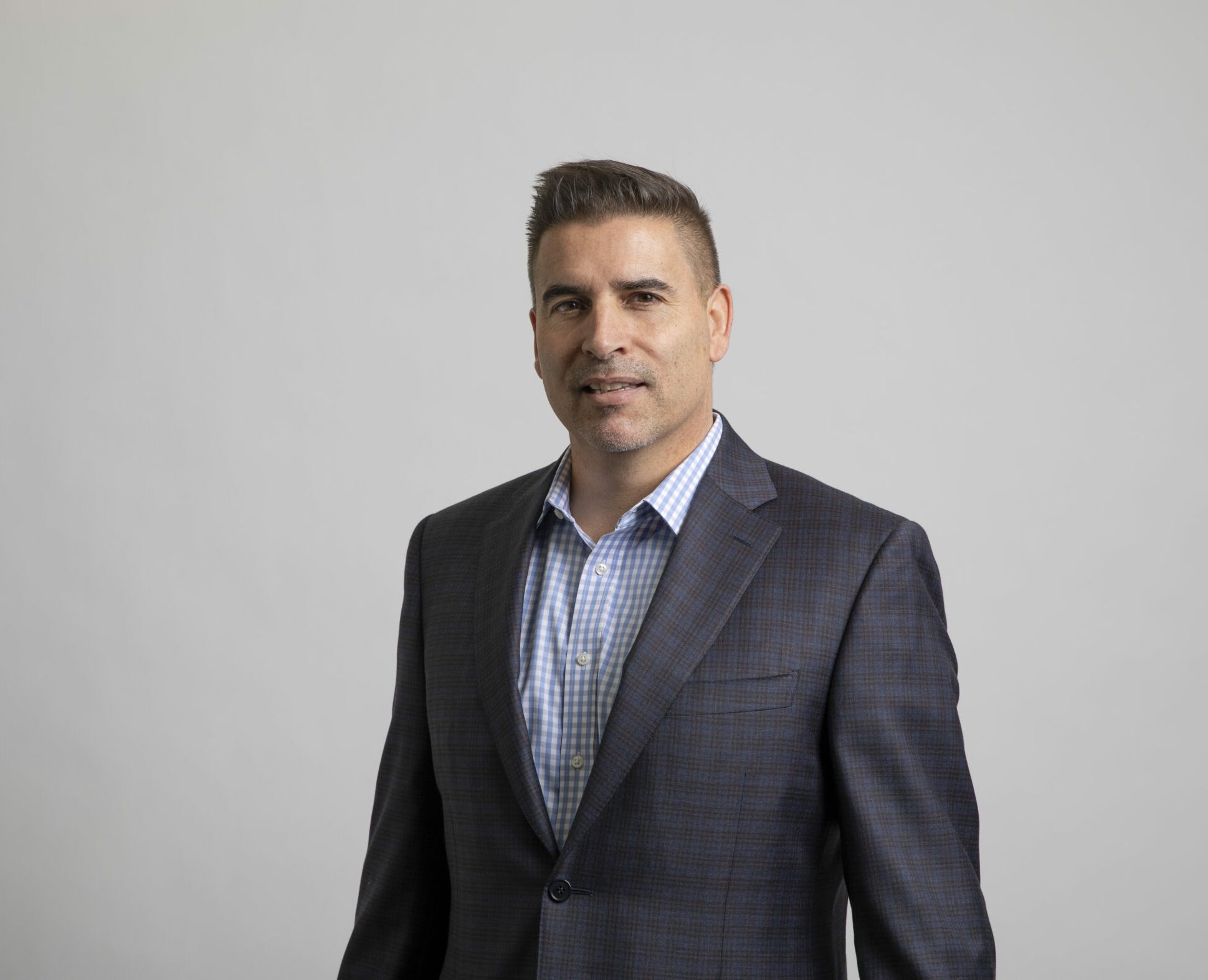Epicor has been sold, again – this time to CD&R, a venture capital house with plans to double the business in five years. Paul Esherwood sat down (virtually) with Steve Murphy, CEO, to discuss what the new ownership means for customers and how Epicor can raise its game in the highly competitive mid-market ERP battleground.
Epicor is one of the original business software companies. It was founded in 1972 (albeit under a different name) and has grown through a series of acquisitions and mergers throughout its life as a privately held company. It has about 20,000 customers worldwide made up of medium sized manufacturers, distributors and retailers – most of which have been loyal patrons for decades. Recent product refreshes have brought the look and feel of its applications out of the dark ages and into the cloud UI era while newly acquired solutions like 1 EDI Solutions, Majure Data and MechaniNet have given the firm new strings to enhance its offering for warehousing, automotive and, more generally, in terms of marketing and integration.
A recent acquisition by CD&R valued the company at $4.7bn, its cloud business is growing at a rate of about 60 percent and revenues for its current financial year are approaching $1bn. You would assume this all amounts to the perfect recipe; loyal customer base, strong revenues, reinvigorated products and an attractive SaaS run rate. And yet something about the Epicor brand has failed to ignite the same pizazz as many smaller ERP vendors enjoy. Why is that?
Several factors have contributed to Epicor’s relatively low profile over the last 10 years; a lack of investment in the product range left the applications looking tired compared with many of their competitors. Marketing had historically not been a strong point and you were unlikely to see the Epicor brand adorned on an F1 car, stitched onto the bag of a golf professional or waving in the wind at a global event. And finally, along with many other ERP vendors, Epicor has had to battle through the pain of retooling its applications for the cloud and converting its install base from on-premise applications to subscription billing.
However, a big update at the start of 2020 and the introduction of improved functionality has breathed new life into their core ERP. A new CMO joined around the same time with a remit to put some fizz into the brand and, under new ownership, CD&R look set to continue their support with the cash and resources needed for further acquisitions and investment in R&D. Just a few weeks after the acquisition was completed I caught up with Steve Murphy, CEO, to ask what the new ownership would mean for customers and what we can expect from Epicor in the short and medium term.
Steve, it’s been almost three years to the day since you took over as CEO at Epicor – it’s been quite a roller-coaster hasn’t it?
SM It’s been a great ride despite COVID-19 this year, and I’m committed to staying at Epicor for the long haul – I feel strongly that we’ve got a lot to look forward to in the future and that our best days are ahead of us.
How are you coping with the COVID-19 crisis on a personal and professional level?
SM My approach at home and work is very much the same. My wife and I are focussed on keeping a positive outlook and adapting to this situation so that our kids feel our home is stable regardless of what is going on in the outside world. I also believe that, because physical and mental health go hand in hand, maintaining a physical fitness routine can help keep us mentally sharp.
Similarly, at Epicor our entire executive leadership team is focussed on leading with positivity, clear communication, and empathy for the varying needs of our global workforce. And to keep people engaged and promote healthy activity, we are in the middle of a 25 day Wellness Challenge to walk 40 million steps – and our employees across the globe have already logged nearly half that goal.
What have been the biggest challenges you have had to adapt to as the CEO of a global tech business?
SM COVID-19 was certainly an unexpected challenge. As a software company, we were well-prepared for a remote work environment – in fact, we were able to quickly transition 99 percent of our employees to work from home setups without any additional equipment.
Thanks to our industry specific ERP, they can smoothly run operations remotely in the cloud. This is a big feat for these more traditional work environments.
But once we were remote and stopped all unnecessary business travel, we encountered a very real challenge: how to build relationships with customers virtually. I think we came up with some thoughtful, creative solutions, including virtual software demos and value workshops. And those solutions continue to serve us and our customers well as we slowly increase safe work travel over the coming months.
Another one of our biggest challenges has been ensuring our global company culture is maintained virtually. The challenge of isolation is not unique to us, but it is a serious one that needs to be addressed. We want our employees to feel connected and supported, and I believe it’s important for our executives and managers to lead by example. We increased internal video communication and global all-hands meetings, and we also got creative with virtual happy hours, games, and coffee and tea breaks. These small efforts go a long way to keeping folks engaged.
What are the biggest challenges your customers are facing at the moment, and how is Epicor helping them?
SM Many of our customers are manufacturers and distributors who deal with heavy industry assets, and their biggest current challenges revolve around how to keep commerce moving while keeping employees safe. Thanks to our industry specific ERP, they can smoothly run operations remotely in the cloud. This is a big feat for these more traditional work environments. Even though many of their employees might not be on-site or in the plant, they can adapt in real-time and make decisions remotely. For example, an on-site worker can use ERP technology to quickly process inventory of inbound materials from a handheld mobile device. Remote and on-site employees can then track and transfer inventory throughout the warehouse.
We’ve also seen customers that want to be better positioned for future disruptions. And this is something Team Epicor excels at. We can help them course-correct business processes that need to be adjusted and provide industry-specific software solutions that increase agility as well as the connectivity between their employees and their business.
Do you see any big differences between geographies or sectors in terms of how the pandemic has impacted?
SM Certainly, it varies a lot by country. And because we at Epicor always seek to best serve our customers, we’ve adapted to support them no matter where they’re working from or how they’re working together as a team. Our professional services is a great example. If there’s a problem we need to jointly solve, we adapt to our customer’s comfort level. Some prefer to meet us in person with safe social distancing practices, while others have great willingness for our team to handle projects off-site and instead hold daily check-ins. It’s all about respecting the needs and concerns of each customer.
Most ERP vendors are (quietly) reporting a surge in uptake for their cloud and SaaS services – is that the same for Epicor?
SM Yes. We’re seeing strong demand, and SaaS revenues are up 60 percent year-to-date.
Do you think that COVID will inadvertently be a positive driver to move your install base onto your cloud applications?
SM Yes. COVID-19 has accelerated the adoption of cloud and SaaS services, as the flexibility these options provide are no longer ‘nice to have’, but necessary for most businesses.
Epicor announced some new products recently – which we like. Your core ERP got a big refresh, Commerce Connect looks like an interesting proposition, and Prophet 21 is an entirely new suite – what’s the uptake been like?
SM Thank you, glad you like them. Yes, the products were due for a refresh. We invested heavily in look and feel as well as functionality, which has really improved the user experience. And the response has been really strong because the products we announced line up with what customers are looking for today.
For example, as customers are offering more omnichannel buying and selling experiences, they’re looking for new ways to extend their footprint. Commerce Connect allows them to do this, and to also grow in new ways that they hadn’t considered before and outside of the four walls of their organisations. Prophet 21, a cloud solution, is something our customers were really appreciative of because they could continue to do business without skipping a beat when many employees weren’t able to go into the manufacturing or distribution facility.
Have you been successful in migrating your install base from the acquired platforms to the new suites being offered now?
SM We have, and that’s because we are offering things like remote support, which allows customers to be able to transition from on-premise to cloud in a more simplistic way. We also offer programmes that allow customers to migrate to cloud with greater ease. And for our install base accounts, we continue to share information that helps them understand the value of cloud migration.
The key thing here is that we offer a hybrid of choice, because we believe our customers know what’s best for them.
Epicor is one of the original business software firms. It has a very long-standing and loyal customer base – but that customer base is
largely on old versions of legacy applications – what are you doing to transition them to subscription billing?
SM It might surprise a lot of folks, but a good portion of our customer base is on current or recent versions of our software. This is due to the fact that we’ve invested so much in our products, and they see the value in updating. For example, nearly 85 percent of our ERP customers are on a 10.x solution. Bookings were 10/90 four years ago, and they are now 50/50.
For customers who haven’t transitioned to subscription billing, we make sure to approach this as a journey. We seek to help them understand the value of a cloud destination and to clarify what benefits they will see. We also respect the pace of our customers. This might mean strategically moving one application into the cloud at a time – and allowing their comfort level to increase with each success. The important thing we always stress is that Epicor will be delivering with them every step of the way.
One of the things that seems to hold Epicor back a little is its lack of partners – is that something that you will be looking into
under the new ownership?
SM It’s fair to say that we’ve been deliberate in taking on partners very carefully based on value-add. We have tended to be cautious with partners. As we scale, we’ll strategically increase our investment with partners internationally and will consider investing in partner relationships in the Americas for professional services and sales where we think it makes sense.
What’s Epicor’s game plan to grow revenues? As perpetual gradually drops off, can you sustain revenues through migration of the
install base, or do you have to be more aggressive about net new customers?
SM We can more than sustain them. I expect organic growth to accelerate as SaaS and subscription growth continues to be very strong and becomes a larger part of our overall business.
And how do you make a play for new customers? What’s the USPs that position Epicor as a leader?
SM Two things. Our deep industry expertise coupled with our sincere respect of our customers and their knowledge.
For example, we don’t just know manufacturing – we know medical devices and fabricated metals. We don’t just know distribution – we know HVAC. This is something our competitors can’t offer due to their size and the fact that they don’t deliver directly to the customers. Epicor has a true pulse on the customer and the industries we serve.
When it comes to respect for our customers, in the mid-market there are a lot of businesses we work with that are multi-generational and extremely sophisticated. They are big, profitable family businesses, and their success is due to their fine level of detail and ability to utilise what is unique or special about their business. We don’t want to get rid of their ‘secret sauce’ through standardised software. So, we team with them when implementing software that is personalised.
When you joined Epicor, KKR had recently acquired the business – what were the objectives they set for you and how have you measured up against those objectives?
SM The three objectives I had were to stabilise the business, achieve profitable growth, and modernise our products for the cloud. And we met or exceeded all three.
When Epicor makes the media it’s more often to talk about the ownership and the mechanics of the business rather than your products and customers. Is that a frustration for you?
SM It can be frustrating, but it’s a consequence that comes with being privately held. However, the media around the recent investment by CD&R was encouraging. All three parties (CD&R, KKR, and Epicor) co-operated to have a message that balanced product and investment with the over-arching deal.
Epicor has been a ‘best kept secret’ for a long time. We have stellar employees who are great at what they do, our solutions are excellent, and our customers love us. We’re committed to sharing that story on a wider scale, and it’s something we’re excited about and investing in for the future.
KKR has just sold the business to CD&R – but Epicor was up for sale almost a year ago and then came off the market. What happened? And what changed to allow the sale to proceed now?
SM We get inbound interest from investors regularly and, as a board member, we’ll always evaluate. My personal belief was that last year wasn’t a good time to sell. Since then, the company continued to improve and demonstrated its value – during exceedingly difficult circumstances, no less – and put us in a position where change of ownership made sense.
What’s the plan under CD&R? What’s first on the list and how will it impact customers?
SM The great thing about our partnership with CD&R is that they share our vision and see a lot of growth here. We’ll be focussed on innovation and investment in product, which will directly benefit our customers, now more than ever.
Where do you see Epicor in the ERP landscape?
SM In our space, we’re top five globally, and I think we’re well positioned for the future and what we want to achieve.
And where will it be in five years’ time?
SM In five years, I expect us to double in size without losing our core values of customer expertise and industry focus.
Will you still be the CEO?
SM I’m here for the long haul.
What’s the best thing about Epicor?
SM Without a doubt, it’s the people and the culture we have created together.
What’s the commitment you make to your customers when they choose Epicor?
SM We value our relationship with you and pride ourselves on being accessible to you not just through go-live, but in daily operations to help you grow and achieve your business goals. With Team Epicor, you can expect a superior level of service and industry expertise, and a place where your feedback will direct innovation. When you encounter surprises or obstacles, we will be there with you to solve your toughest problems.
Why would a customer come to Epicor if it was looking for a new ERP provider?
SM Customers come to us for the collaborative relationship we offer and the expertise we provide. At Epicor, we truly understand our customers’ industries and what is unique about their business. But we also accept that our customers have useful information we don’t have. I can name multiple instances where a customer came to us and offered insight that we then incorporated into innovative functionality. We will listen and collaborate with our customers. And if a customer emails about a problem, they shouldn’t be surprised if one of our executives engages to help them figure out a solution.




